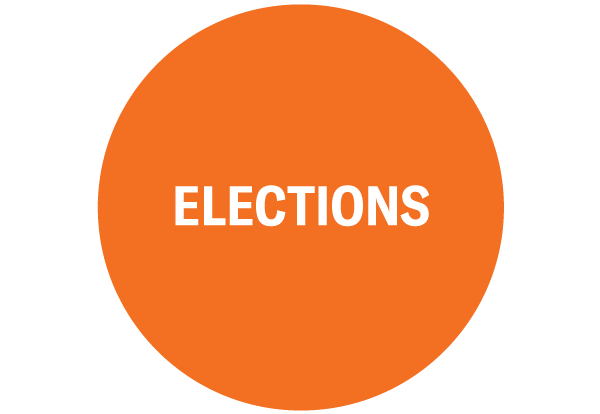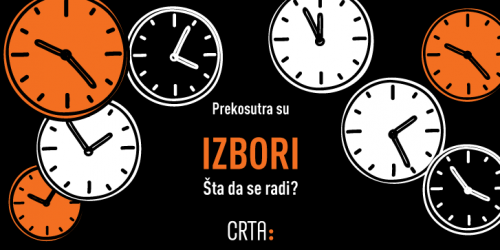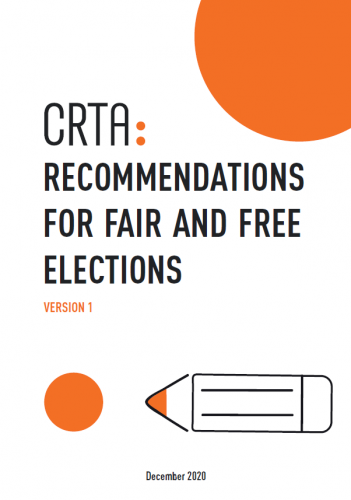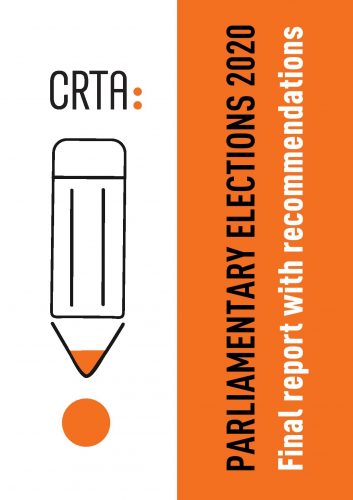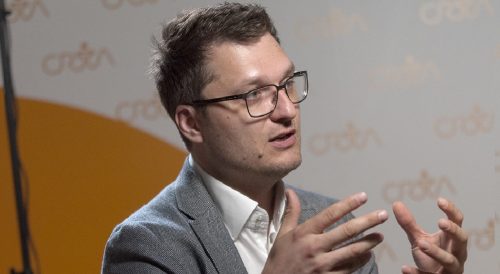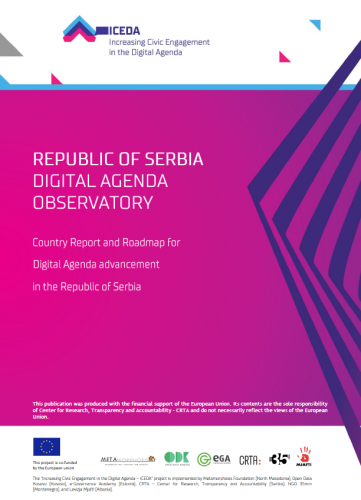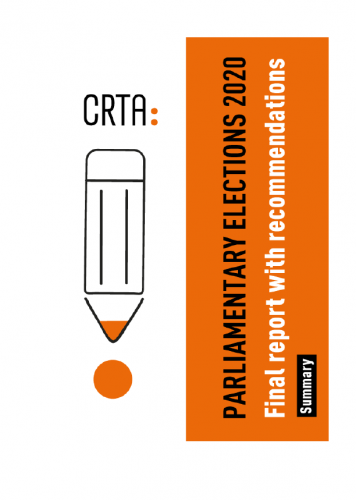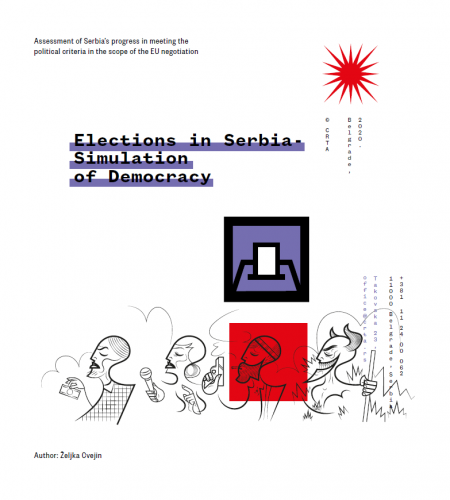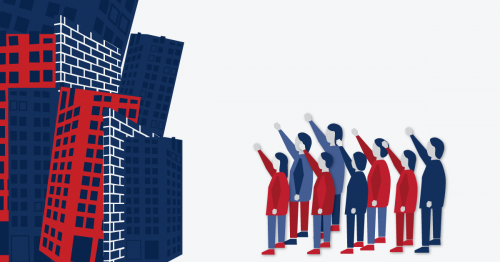As we mark the 30th anniversary of the first multiparty elections in Serbia, with less than a year and a half to go until the regular presidential and Belgrade elections, as well as the announced early parliamentary elections, CRTA is presenting a proposal for five key changes necessary for elections in Serbia to become substantially, and not just formally, democratic.
The purpose of these recommendations is to help the authorities in fulfilling the undertaken obligations, but also to bring closer to the citizens and political organisations the concrete measures that need to be taken in order for the elections in Serbia to become essentially, and not only formally democratic. Democratic elections are our right, and fighting for them is our obligation.
Elections for MPs of the 12th convocation of the National Assembly of the Republic of Serbia were held on June 21st, 2020. In addition to the regular parliamentary elections, regular provincial elections were held on the same day, as well as elections for local assemblies in 154 cities and municipalities in Serbia. The CRTA observation…
During the European Parliament’s Serbia Delegation meeting on the post-electoral landscape in Serbia, held on November 4th 2020, Crta’s Program Director and Chief of the Crta’s Election Observation Mission pointed out that the post-election atmosphere is not encouraging for democracy in Serbia.
Only with a clear and understandable approach to all citizens, without exception, can there be a sustainable digitalization in all spheres as an effective mechanism for significantly improving the lifestyle of the population. When we talk about digitalization in all spheres, we refer to the advancement and bigger efficiency of the institutions, organisations and other…
Elections for MPs of the 12th convocation of the National Assembly of the Republic of Serbia were held on June 21st, 2020. In addition to the regular parliamentary elections, regular provincial elections were held on the same day, as well as elections for local assemblies in 154 cities and municipalities in Serbia. The CRTA observation…
We are looking for a colleague committed to supporting democracy, parliamentarism, elections, activism, media, civil society, to strengthen our program “Democratic Institutions” from the position of the Advocacy Manager.
Yet another election, a celebration of democracy, or in this case, a simulation of democracy in Serbia, finished. The circumstances of holding the elections were unique. The atmosphere before the elections had been called, and also during the campaign, was characterised by the boycott of some of the opposition parties. The reasons for a boycott were poor electoral circumstances and long years of deterioration of the democratic institutions in Serbia. The backsliding of democracy was confirmed by many organisations, among them Freedom House, which this year assessed Serbia as the hybrid regime. The epidemic has affected the entire world, and it has also made an impact on the elections in Serbia as the election activities were interrupted for almost two months.
The media and civil society organizations demand from the Ministry of Finance and the Administration for the Prevention of Money Laundering to immediately present the grounds for suspicion due to which they ordered the extraordinary collection of information about organizations, media, and individuals from the commercial banks.
Our topics

Democratic culture
Because politics is not just for politicians. It is our human and citizen right to participate in the processes of making decisions which influence our lives. A dialogue has no alternative.

Free and fair elections
Because elections are the pillars of democracy. It is every citizen’s right to decide on whom to give his/her vote in free and fair conditions. Our vote is valuable and it can make a difference.

Open institutions
Because institutions serve the citizens. We need strong institutions with integrity which protect the public interest.

Free media
Because media should ask questions and critically analyse the reality. We need the media which protect the public interest and tackle the needs of the citizens.






